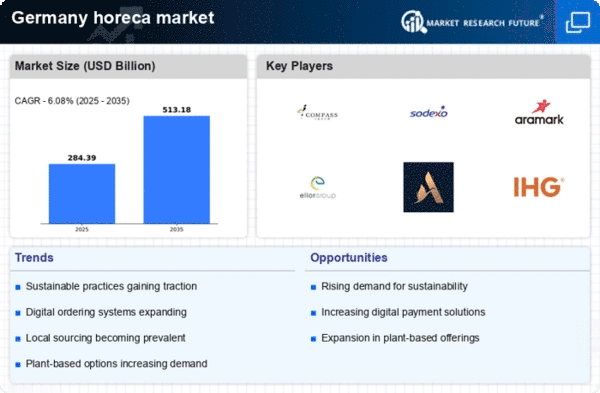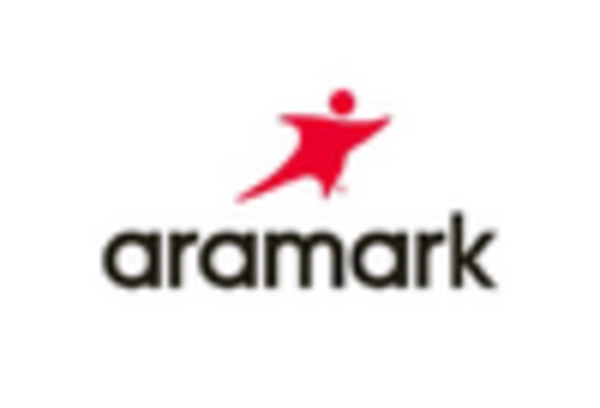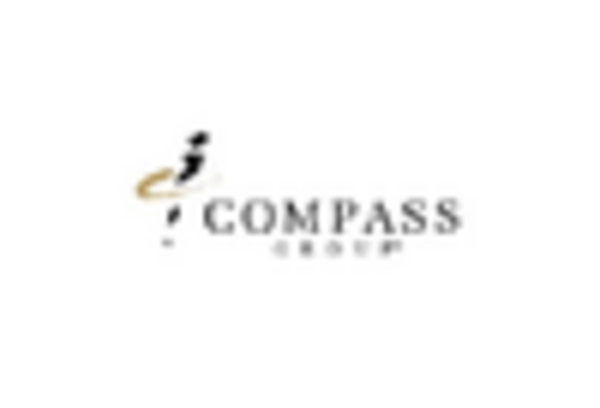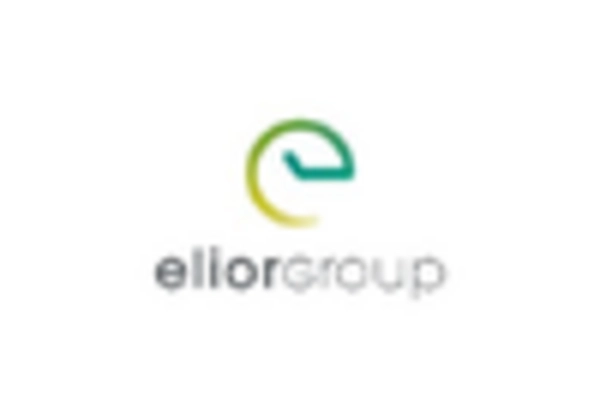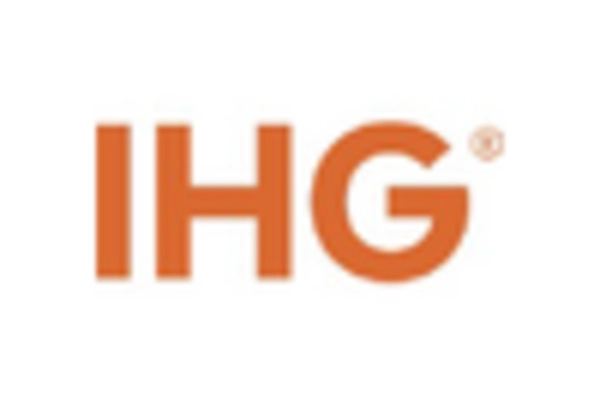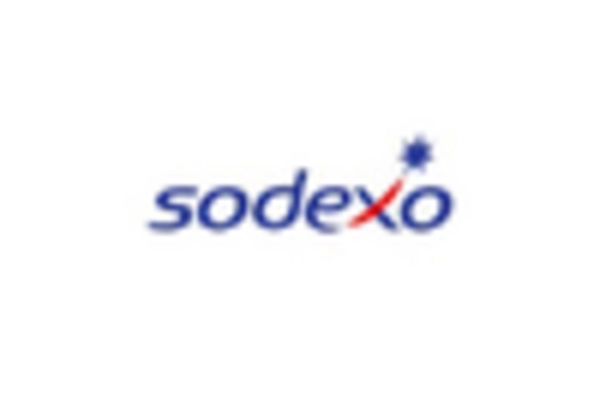Tourism Recovery and Growth
The recovery of the tourism sector is playing a pivotal role in driving the horeca market in Germany. With international travel restrictions easing, Germany is witnessing a resurgence in tourist arrivals, which is expected to boost demand for horeca services. In 2025, tourism is projected to contribute approximately €100 billion to the horeca market, reflecting a robust growth trajectory. This influx of tourists is prompting horeca establishments to enhance their offerings, catering to diverse cultural preferences and experiences. Moreover, the horeca market is increasingly focusing on creating unique dining experiences that appeal to both domestic and international visitors. As tourism continues to flourish, the horeca market is likely to benefit from increased foot traffic and higher revenue potential, making it a critical driver of growth.
Changing Consumer Preferences
The evolving preferences of consumers are significantly influencing the horeca market in Germany. There is a growing demand for unique and experiential dining options, with consumers seeking out establishments that offer more than just food. Recent surveys indicate that 55% of diners are willing to pay a premium for memorable dining experiences. This trend is prompting horeca businesses to innovate their service offerings, incorporating elements such as themed dining, interactive cooking classes, and local culinary events. The horeca market is adapting to these changing preferences by creating environments that foster social interaction and engagement. Additionally, the rise of food delivery services is reshaping consumer expectations, as convenience becomes a key factor in dining choices. As consumer preferences continue to evolve, the horeca market must remain agile to meet these demands.
Consumer Health Consciousness
The increasing awareness of health and wellness among consumers is reshaping the horeca market. In Germany, a notable shift towards healthier food options is evident, with 45% of consumers actively seeking nutritious meals. This trend is prompting horeca establishments to adapt their menus, incorporating organic and locally sourced ingredients. The horeca market is responding by offering more vegetarian, vegan, and gluten-free options, catering to diverse dietary preferences. This shift not only aligns with consumer demands but also enhances brand loyalty, as establishments that prioritize health-conscious offerings are likely to attract a broader clientele. Furthermore, the emphasis on transparency regarding ingredient sourcing and nutritional information is becoming a critical factor in consumer decision-making, thereby influencing the operational strategies within the horeca market.
Sustainability Practices Adoption
The adoption of sustainability practices is becoming a crucial driver in the horeca market in Germany. Consumers are increasingly favoring establishments that demonstrate environmental responsibility, with 70% of diners expressing a preference for sustainable dining options. This trend is prompting horeca businesses to implement eco-friendly practices, such as reducing food waste and sourcing ingredients from sustainable suppliers. The horeca market is witnessing a rise in certifications and labels that signify commitment to sustainability, which can enhance brand reputation and attract environmentally conscious consumers. Furthermore, the integration of sustainable practices is not only beneficial for the environment but also presents opportunities for cost savings in the long run. As sustainability becomes a core value for consumers, the horeca market is likely to see a shift towards more responsible business models.
Technological Advancements in Service
Technological innovations are significantly impacting the horeca market in Germany, enhancing operational efficiency and customer experience. The integration of advanced point-of-sale systems and mobile ordering applications is streamlining service delivery, allowing establishments to manage orders more effectively. Recent data indicates that 60% of horeca businesses have adopted some form of digital technology to improve service efficiency. Additionally, the rise of contactless payment methods is reshaping consumer interactions, as customers increasingly prefer seamless and quick transactions. This technological shift not only improves customer satisfaction but also enables horeca market businesses to gather valuable data on consumer preferences, which can inform future marketing strategies. As technology continues to evolve, the horeca market is likely to see further innovations that enhance both operational capabilities and customer engagement.


